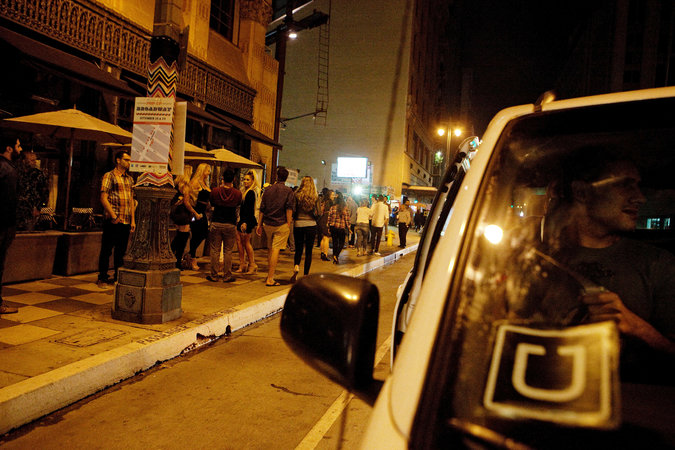In his New Atlantis piece, “Losing Liberty in an Age of Access,” James Poulos writes of returning to live in his former neighborhood of Downtown Los Angeles and finding a new order–and one that isn’t limited to that city’s former ghost town. He examines the modern landscape, in which we’re all connected but there are no strings attached, a rental economy elbowing aside the buying one. The Great Recession may have hastened the new normal of access over ownership, of time itself being commodified and valued over stability, but it wasn’t the driving force behind the Uberization of cosmopolitan life, a more rootless and less cumbersome thing, in which everything (and seemingly everyone) is for rent. Technology has mostly propelled the change of heart. What has been gained and what has been lost? An excerpt about the transformation that’s taken hold in DTLA:
In an age when ownership meant everything, downtown Los Angeles languished. Today, current tastes and modern technology have made access, not ownership, culturally all-important, and LA’s “historic core” is the hottest neighborhood around. Likewise, from flashy metros like San Francisco to beleaguered cities like Pittsburgh, rising generations are driving economic growth by paying to access experiences instead of buying to own.
Nationwide, the line between downsizing hipsters and upwardly mobile yuppies is blurring — an indication of potent social and economic change. America’s hipsters and yuppies seem to be making property ownership uncool. But they’re just the fashionable, visible tip of a much bigger iceberg.
Rather than a fad, the access economy has emerged organically from the customs and habits of “the cheapest generation” — as it has been dubbed in The Atlantic, the leading magazine tracking upper-middle-class cultural trends. Writers Derek Thompson and Jordan Weissman recount that, in 2010, Americans aged 21 to 34 “bought just 27 percent of all new vehicles sold in America, down from the peak of 38 percent in 1985.” From 1998 to 2008, the share of teenagers with a driver’s license dropped by more than a fourth. And it isn’t just cars and driving: Thompson and Weissman cite a 2012 paper written by a Federal Reserve economist showing that the proportion of new young homeowners during the period from 2009 to 2011 was at a level less than half that of a decade earlier. It’s not quite a stampede from ownership, but it’s close.
In part, these changes can be chalked up to the post-Great Recession economy, which has left Millennials facing bleak job prospects while carrying heavy loads of student debt. But those economic conditions have been reinforced by other incentives to create a new way of thinking among Millennials. They are more interested than previous generations in paying to use cars and houses instead of buying them outright. Buying means responsibility and risk. Renting means never being stuck with what you don’t want or can’t afford. It remains to be seen how durable these judgments will be, but they are sharpened by technology and tastes, which affect not just the purchase of big-ticket items like cars and houses but also life’s daily decisions. Ride-sharing apps like Uber and Lyft and car-sharing services like Zipcar are biting into car sales. Vacation-home apps like Airbnb have become virtual rent-sharing apps. There’s something powerfully convenient about the logic of choosing to access stuff instead of owning it. Its applications are limited only by the imagination.
That is why we are witnessing more than just a minor shift in the way Americans do business. It is a transformation. Commerce is being remade in the image of a new age. Once associated with ubiquitous private property, capitalism is becoming a game of renting access to goods and services, not purchasing them for possession.•
Tags: James Poulos

